|
Hooves are made of fibrous structural proteins called keratin on the outside and soft tissue surrounding the coffin bone on the inside. Keratin is a protein chain built of amino acids, I briefly discussed this in my previous blog post. So it makes sense then that if we need to develop stronger hooves or rehabilitate hooves its these amino acids that we should look to balance first. A horse that is deficient in proteins will usually have dry and brittle hooves. This is not to be confused with dry desert hooves, I am not talking about the moisture content on the outside of the hoof, but more specifically the texture of the hoof material when it is cut into. Dry or brittle hoof will have a hard and non elastic feel when it is rasped or nipped off. A healthy hoof will have a little bit if a spring to it when it is cut, it is more flexible due to the cellular makeup when those proteins are binding and forming the keratin. I see these dry and brittle hooves in conjunction with horses that may have an underdeveloped top line and/or a poor hair coat. All of these symptoms can be due to a lack of amino acids or proteins. I am currently undergoing a series of supplement trials with several of my own horses as well as some client horses. I have seen big changes in the horses that had dry and brittle hooves with very little elasticity when we started to supplement more proteins. These trials are purely for my own research, they are not scientific and are based purely on my observations of the hoof health and overall appearance of the horses. Feed trial #1 is a group of horses that have been fed alfalfa pellets, biotin and a mineral supplement for the past 6 weeks. Nothing else has changed for the horses such as living environment or hay source. Their hooves have gone from very dry and rigid with a brittle feel when cut to much more elastic and resilient feel. These horses also tended to be a bit tender on hard ground with a thin sole and that is improving as well. I am interested to see if the progress plateaus at some point, which would signal that perhaps the protein deficiency has been restored, or perhaps the absorption of the protein has diminished. Research has shown that it can take up to 2 years to replenish a protein deficiency in horses so this is a long term trial for me. We also have to take into account the supplementation of minerals to help bind these amino acids as well as the digestive system health of the horse which would affect the absorption rate of the supplemented proteins exponentially. Perhaps a horse could be fed the appropriate amount and varieties of amino acids but due to poor gut health could not absorb them. In this case feeding more proteins may well help with the deficiency, but instead restoring optimal gut health via pre and pro biotics may be more effective. Feed trial #2 is a group of horses with the same dry and brittle feel to their hooves and they are receiving a daily hoof health supplement that is toted as an all in one solution that contains all of the needed proteins, minerals and vitamins for the horse. After only 4 weeks on this feed trial I am seeing incremental changes in the hooves, but the results are less improved as in feed trail #1, more time is needed to study this regimen. Feed trial #3 is a group of horses that don't have any major outward issues with their hooves. They don't have the dry brittle hoof texture, and have a relatively healthy looking hair coat, however they do show a slight amount of muscle wastage in the top line. They have been fed a hay source high in alfalfa, and have been supplemented with a free choice mineral supplement for approximately 8 weeks. Results have varied among the horses but the ones with more muscle wastage have have improved slightly, while the ones with a lesser degree of muscle wastage have stayed the same. One area where this herd has improved is the incidence of minor thrush in the hoof. In spite of the wet weather due to the season change, these horses hooves appear to be more resistant to developing thrush and have overall healthier frogs then what I was previously seeing in their hooves. I have several other trials going on with single horses or smaller groups of horses. For me it is very interesting to see the effects of various supplements and what they can do for horses. I am specifically trying to target the hooves, but because horses are so interconnected you really have to address the digestive system as well in order to be sure that what you are supplementing is being properly absorbed. Please take this information for what is is, simply my own thoughts and musings regarding hoof health and supplementation. There are many other things that can and sometimes should be supplemented, for instance omega fatty acids and vitamin e, however you should speak with your veterinarian or equine nutritionist to see what you should specifically be supplementing for your horse. One thing that stands out to me is a conversation I had with a veterinarian a few years back. She said that whatever you are supplementing your horse with should provide a result. Whether that is an improved appearance, health, attitude, emotional state or physical change, there should be some evidence that it is doing something. Otherwise you are likely just feeding something that is passing right through and wasting money you could have spent on something beneficial to your horse. Often you don't know if what you are doing is working until you stop feeding it, sometimes this is where you will see the change either for the good or for the bad. I'm not saying stop feeding supplements or that you must feed x,y and z. I'm just saying know what you are supplementing and why. You know your horse better then anyone else and you can discuss their hoof health with your hoof care provider or your veterinarian and make an informed decision about what supplements might be beneficial for them.
1 Comment
Let me start by prefacing this post with a disclaimer. I am not a nutrition expert, a vet or an employee of a feed company. I don't personally know your horse and its circumstances, so please take this information as just my opinion and don't make any drastic changes to your horse's feed regimen without consulting your veterinarian. What I can offer you is my years of experience and anecdotal evidence around various feeding concepts and how I have seen them impact horses, specifically in the areas of hoof health and function.
I believe in feeding horses naturally. That means lots of forage that is balanced in minerals and energy requirements. If you have the right hay/pasture combination then no supplements should be necessary for a healthy horse. This notion that is common among horse owners that all horses should have some type of grain (ie processed feed) in their diet needs to be better interpreted. If you have a compromised horse with health issues or hoof problems then you may need to add supplements to your forage to help. If you have a horse with extreme energy requirements such as a fast metabolism or a performance horse with a great energy output you may need to add more calories. Its how we add these things that becomes important. My preference would be to add more of the balanced forage as opposed to grain. It equates in humans to someone with a fast metabolism that may have trouble keeping weight on. The healthy option to maintain their weight wouldn't be to eat more fast food. It would be to add more of the healthy food they are eating to try and maintain their body condition and energy requirements. Its the same for our horses. The most 3 most common issues I see regarding diet in my trimming practice are: #1 - too many processed carbohydrates #2 - mineral deficiency #3 - protein deficiency Processed commercial feeds are generally higher in carbohydrates and fillers then people realize. They are "fortified" with added vitamins and minerals, but most horse owners don't even know what those vitamins and minerals are or what they are added to the feed for. Most of those vitamins and minerals are already present in adequate quantities in your horses's pasture and forage and they aren't actually required to be supplemented. Often they are such negligent amounts that it doesn't harm your horse to consume them, but the added carbohydrates in the processed feed may be harming your horse. I have seen a lot of hoof, hair coat, digestive and behavior problems rectified by reducing the carbohydrate intake of the horse. Not reducing the overall fiber and forage intake, but removing processed feeds. Often horse owners feed a "complete feed" in the hopes that it is supplementing everything they think maybe lacking in their forage. While in theory this works, often the amount of that processed feed you would have to feed in order to have your horse receive all of those vitamins, minerals and nutrients far exceeded the amount of processed carbohydrates they should be eating. There are also times that these additives may throw off the balance of absorption of certain things and we have to be cautious not to upset this balance. There is a time and a place to add supplementation. If your forage is lacking minerals due to overgrazing or mineral depletion of the soil then you may need to add them. You will not be able to tell this by just looking, you will need to run tests on your hay to make sure you are supplementing things that need to be supplemented and are not over supplementing your horse which can lead to mineral toxicity. Testing is easy if you buy your hay from the same source every year, but can be more complicated if you don't. Hay testing is relatively inexpensive ranging from $20 to $100 depending on the panels you want to run. But I assure you they are worth it in the long run. Supplementing minerals that aren't needed could cost your $50+ each month, and large vet bills down the road if you end up with a toxicity. A fastidious hay farmer will fertilize their soil when needed and therefore balance the mineral content of their hay so that you may not have to supplement minerals. It can be worthwhile to speak to hay suppliers about their fertilization practices and the mineral content of their hay before purchasing. Protein deficiency is something that not a lot of horse owners understand adequately. Proteins are in every part of your horse and each protein is made of smaller parts that when linked together make up an individual protein with a specific function. Proteins are broken down in the digestive system into smaller parts that form amino acids. Horses require 20 different amino acids to come together in various combinations in order to make up the protein chains that build cells. Most horses are confined to the same overgrazed pasture and same hay source that may not provide all of these amino acids. Some amino acids can be produced from other amino acids, but there are a few that cannot be. These are called limiting amino acids and without them the horse can't form the protein chains needed to adequately build specific cells. So what happens is the horse reabsorbs these proteins from other already produced cells in the body. Because the priority is organ function and cell creation the areas that suffer first and have to recycle their amino acids more frequently are the hair coat, top line muscles, connective tissues and hoof cells. This creates a protein deficiency that has a systemic effect on the horse and can take years to correct. Supplementing protein can be difficult because of those 20 amino acids. You have to be sure to supplement protein sources that contain the three limiting amino acids or the re-absorption of those amino acids from other areas will continue. High quality protein sources available are alfalfa pellets/cubes which are approximate 17% protein as well as soybean meal which is on average 40% protein. To add context the average protein content of grass hay is anywhere from 8-14%. This information is just the tip of the iceberg when it comes to equine nutrition and you must understand the complete picture before making changes to your horse's feed regimen. Talk to your vet or equine nutritionist and formulate a plan specific to their needs, energy requirements and specifically balanced to your hay or pasture. Equine diet and nutrition has a whole horse effect and if our focus is healthy hooves we have to take the diet into account. The diet builds the cells that make up the hoof and it also has to be balanced within the horse. Up until this point I have very purposefully avoided writing about the subject of equine nutrition. The equine industry is full of fancy marketing tactics by feed manufacturers and it seems a lot of people have been brainwashed into thinking that they must feed their horse a specific bagged "grain" in order for their horse to be healthy and thrive. A question I hear often in my trimming practice from horse owners is what type grains they should be feeding their horse. My answer is always why do you need to feed grain? Its sort of a loaded question, some horses have high nutritional requirements and can benefit from added grains, but others don't need them at all so its never a cut and dry answer.
By now if you have read my writings or followed me on social media you should know that I like to encompass a holistic approach when it comes to my horses. This naturally carries through for me when it comes to feeding them. I prefer a forage based diet with as little processed food as possible. Horses by nature are grazers, they should spend 16 or so hours a day browsing around for food a bite here and a bite there - a constant stream of forage into the digestive system. But what we need to understand about that is that they are not grazers in the sense that they should be grazing lush grass pastures for 16 hours a day, mouthful after mouthful of lush sugar laden green grass. The equine digestive system requires a delicate balance. Too many carbohydrates (sugars) and you can end up with systemic issues such as insulin disregulation and laminitis. Too little forage and you can cause irritation in the stomach and create ulcers and imbalances with the healthy digestive bacteria. Too little protein and you will see muscle wastage and protein deficiency, too much protein and you could cause damage to the horse's kidneys and liver. By now you might be able to see why I have avoided writing about nutrition. What happens in domestication is that we commonly overgraze our pastures, either by having too small of a space of the number of horses we have or by not rotating the horses in order to give the grass a break. This cycle usually sees the pastures with tall dense green grass in the springtime and early summer and then as the summers goes on this grass becomes overgrazed creating high stress levels in the grass and root systems, even worse then the tall lush grass of spring. The horses often favor this short grass because it is higher in sugar and more palatable. If you have ever walked through a horse pasture you will have seen clumps of tall grass that the horses will avoid, instead they tend to prefer the very short grass with the root systems exposed. This is because the tall grass, still full of carbohydrates, is usually significantly less carb laden then the short grass and exposed root. Horses don't always know what food is good for them as they exist on a very primitive level when it comes to eating in comparison to humans. Their brains are telling them that winter is coming and they need to build has much body fat as possible to protect themselves from the harsh cold weather. Their brain doesn't know that they will be wearing three rugs and fed warm mash twice a day as our human brain does. Horses in nature have a very natural cycle of weight gain and loss throughout the year. They build up body fat all spring, summer and fall in order to make it through the harsher winter foraging beneath the snow. This is how the ancestors of our domestic horse are programmed and this programming has been passed down to our domestic horses. They don't understand that they are now living in Florida and won't require those extra calories, they just exist as they are designed to, using those biological instincts to guide them. So it is then up to us as the caretakers for our horses to provide them with the best possible diet suited to their individual needs. So what does that mean? To me it means keep things simple. Natural is simple for me. I feed my horses forage, good quality hay low in sugar, higher in protein with a balanced mineral makeup and in quantities that keep their body condition in an optimal state for each individual horse. It might sound primitive but if one of my horse starts to look underweight I add more forage, if the are looking overweight I decrease forage. There is no preset percentage of body weight feed ratio that I follow, I visually interpret the results of my feeding program and adjust accordingly. This works well for me for a horse with no health complications who may be in mild to moderate work schedule. Where things can start to get complicated is the horses with compromised health, horses who are performance athletes, old horses, young horses and injured horses. It is also difficult if your hay is not balanced in mineral makeup or may be high in sugar and lacking protein or vice versa. These are challenges we all face and this is where feed companies have found their market. So what can we do to make up for a deficit in our hay? To help our aging horse or our compromised horse? Stay tuned for my next blog post to answer those questions and more! |
AuthorKristi Luehr is a barefoot trimmer/farrier, author, and founder of the Okanagan School of Natural Hoof Care. She is certified by the Canadian Farrier School as well as the Oregon School of Natural Hoof Care, and also has certification in equine massage and dentistry. Her focus is to educate owners about hoof anatomy, function and proper barefoot trimming that supports and grows healthy and functional hooves specific to each horse's individual needs. She is the author of three online courses specific to hoof care and is always striving to create more educational content for students to learn from. Archives
May 2024
|
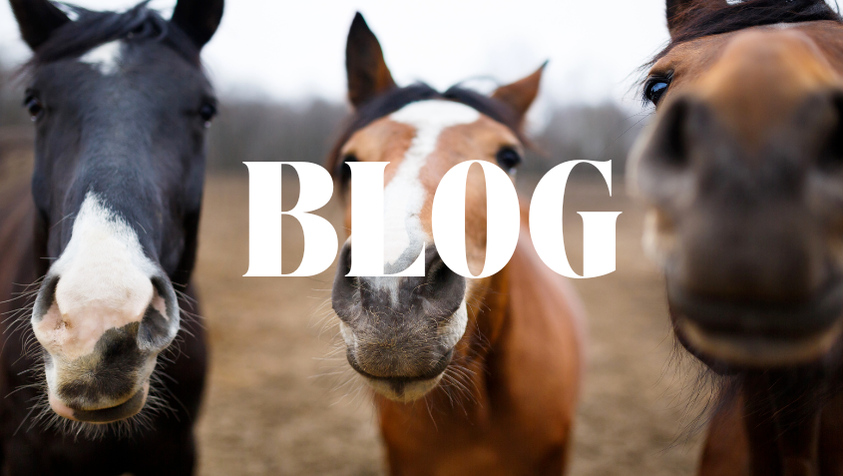
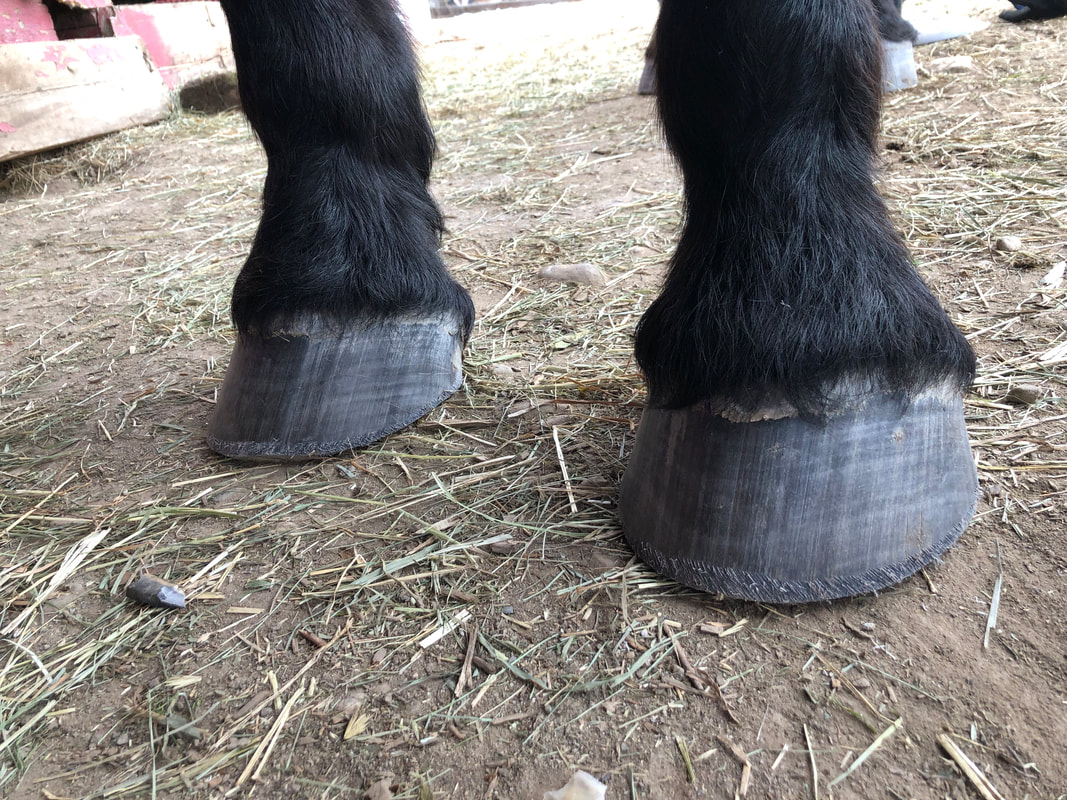
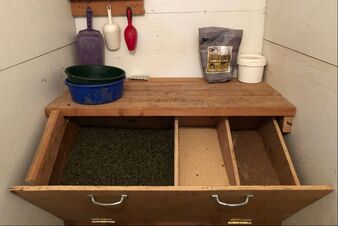
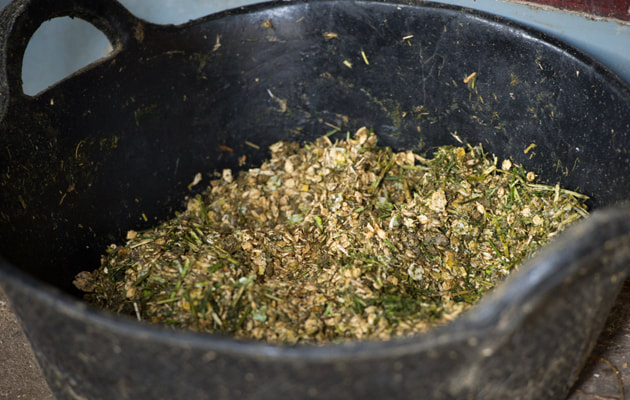
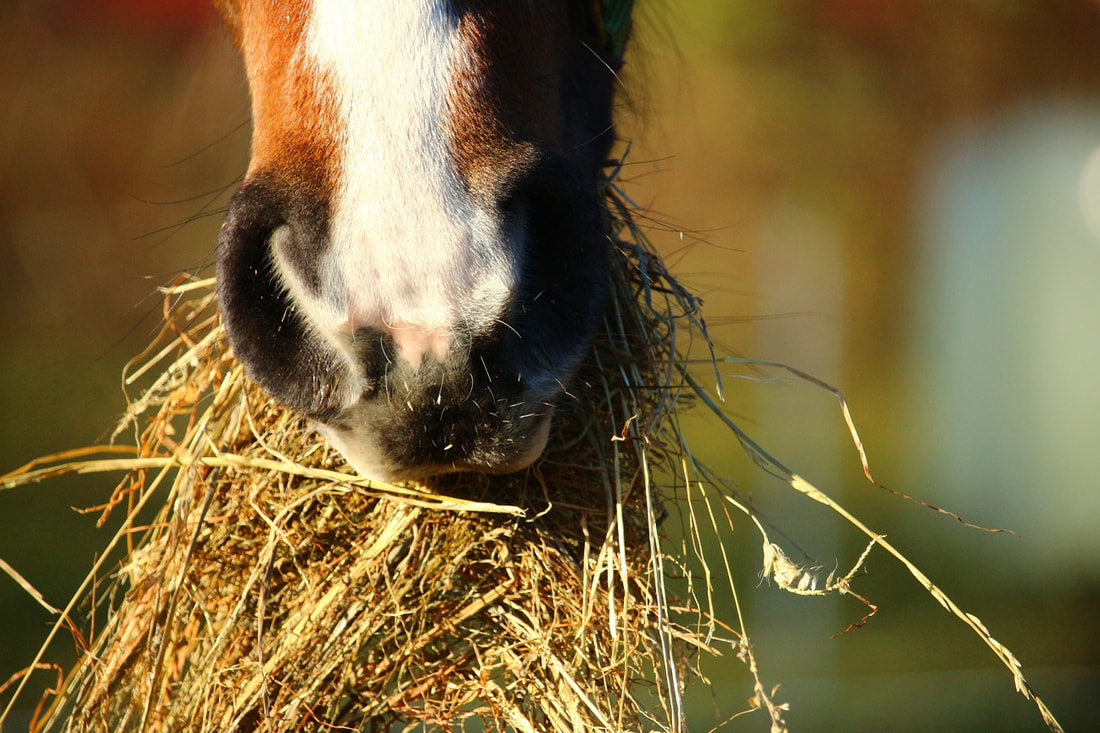
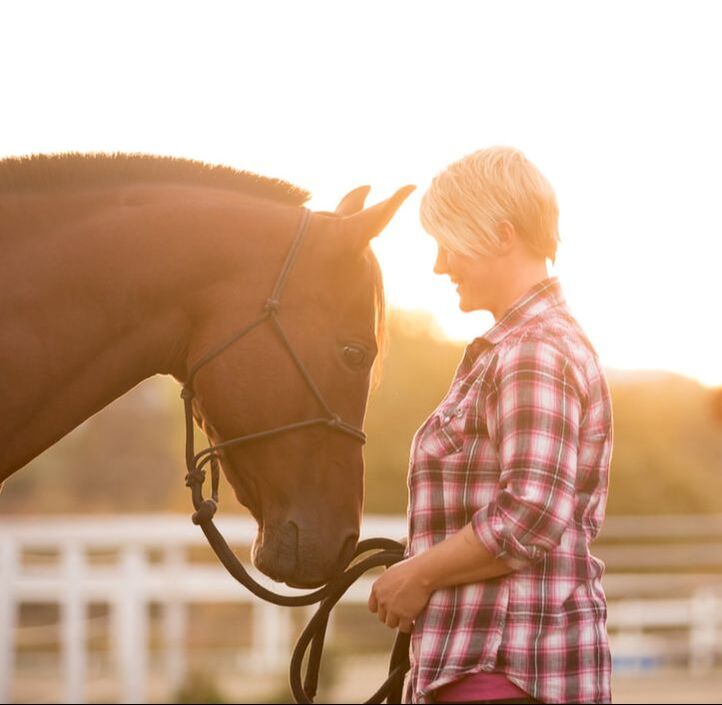
 RSS Feed
RSS Feed
